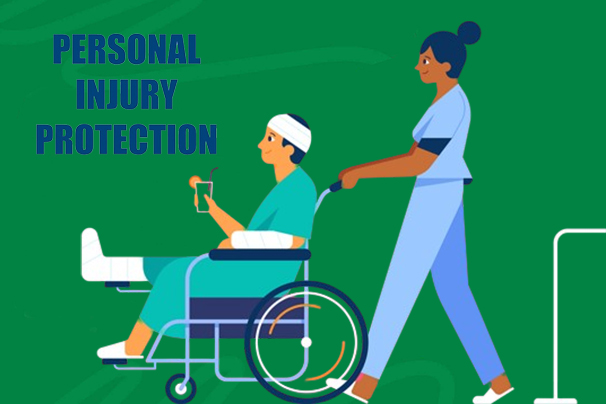Personal injury protection, also known as PIP or no-fault insurance, is an insurance type that acts as a safety net for drivers and passengers. Instead of experiencing the ups and downs that come with finding out who is at fault or is responsible for an accident, PIP offers coverage for any expenses, regardless of who is at fault. In this guide, you will learn more about personal injury protection and everything there is to know about it.

What is Personal Injury Protection?
As mentioned previously, personal injury protection is also known as no-fault insurance and is a type of car insurance that offers coverage for lost wages, medical expenses, and other additional costs that were a result of a car accident, no matter who is at fault or responsible. In other words, no matter who caused the accident, this no-fault coverage pays out the claims and helps policyholders get assistance faster.
How Does it Work?
With personal injury protection as a part of your car insurance quote, if you get into an accident, you can file a claim with your insurance provider to be able to get coverage for related expenses. Moreover, this no-fault insurance covers the insured or policyholder, passengers in the policyholder’s car, and members of the insured household.
This type of insurance sometimes covers pedestrians who were hit by the policyholder’s vehicle. However, it is important to know that the specifics of this type of insurance can differ by policy or state. This is why you need to understand your policy details before anything else.
What does Personal Injury Protection Cover?
Since you know that the coverage or specifics of a PIP policy can vary by policy or state, here is what it covers:
- Medical expenses.
- Rehabilitation costs.
- Substitute services.
- Funeral expenses.
- Lost wages.
What Does It Not Cover?
With personal injury protection or no-fault insurance, here are scenarios you will not be getting coverage for:
- Damage to your vehicle.
- Damage to other people’s property.
- Injuries from accidents that occur while committing a felony.
- Bodily injuries to other drivers or their passengers.
- Injuries due to commercial or work use of your vehicle.
Do I Need a Policy?
Whether or not you need this coverage depends on the state you live in. This is because some states make it mandatory to have it as a part of your car insurance quote. Although it is also optional in some states, having this type of protection is important and can be beneficial to help you handle possible medical expenses and additional expenses or costs after an accident without having to consider who is guilty or at fault.
How Much Does Personal Injury Protection Cost?
The cost of personal injury protection (PIP) differs depending on various factors, like your insurance company, the state’s requirements, the deductible amount, driving records, and coverage limits. Nonetheless, it is usually a moderate addition to the overall cost of the car insurance policy or quote.
How To Get Personal Injury Protection
Getting personal injury protection or no-fault insurance is a simple process that can increase your car insurance coverage. If you would like to get a policy for yourself and your family, here is what you need to do:
- Review your current policy.
- Contact your insurance provider.
- Compare insurance quotes.
- Select appropriate coverage limits.
- Complete the application.
- Review your policy.
- Pay your premium.
By following these steps, you can get PIP coverage and experience the peace of mind that comes with knowing that you and your family are protected in case of an accident.
Frequently Asked Questions
How do you File a PIP claim?
To file a personal injury protection claim, reach out to your insurance provider as soon as possible after the accident. You will have to provide details about the accident and your injuries, and you may need to submit medical records and other documentation.
Do you need PIP if you have Health Insurance?
Personal injury protection can be beneficial as it covers additional items like lost wages and rehabilitation services and can help cover health insurance deductibles, even if you have health insurance.
Should I get Medical Payment Coverage on top of PIP?
If you frequently carry passengers who could file a claim through your policy or if you want extra coverage to help with high medical costs, adding medical payments coverage on top of PIP can be a good idea.
Is PIP the same as a Bodily Injury?
No, PIP covers your injuries without regard to fault, while bodily injury liability coverage pays for injuries you cause to someone else in an accident where you are at fault.
What states require Personal Injury Protection?
States that require PIP include Florida, Hawaii, Kansas, Kentucky, Massachusetts, Michigan, Minnesota, New Jersey, New York, North Dakota, Pennsylvania, and Utah. Each state has specific requirements and minimum coverage limits.
